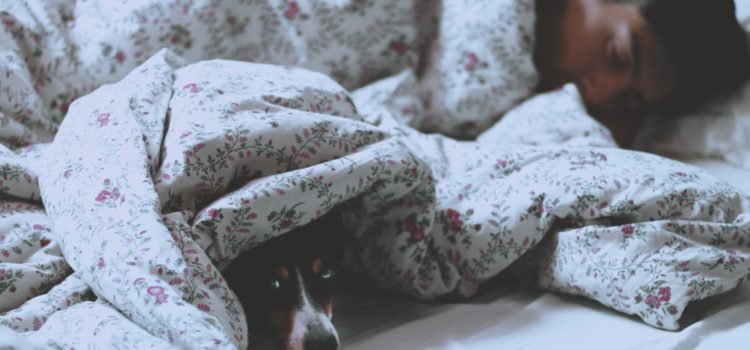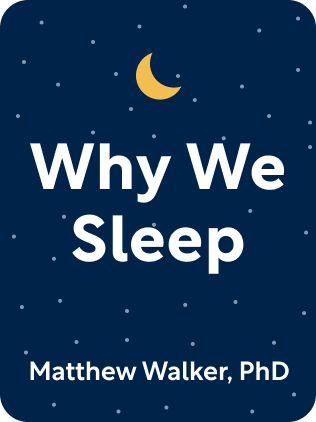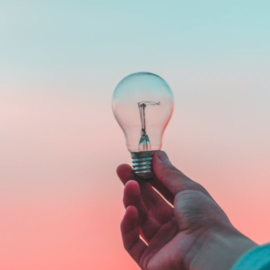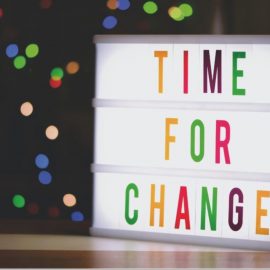

This article is an excerpt from the Shortform summary of "Why We Sleep" by Matthew Walker. Shortform has the world's best summaries of books you should be reading.
Like this article? Sign up for a free trial here .
Are sleeping pills bad for you? What are alternatives to sleeping pills?
Experts agree that as a long-term solution, sleeping pills are bad for you. Insomnia is a common sleep disorder that frustrates many people each year, causing them to seek solutions. But why are sleeping pills bad? Read more to find out.
Are Sleeping Pills Bad? Do They Help Insomnia?
Given the complex physiology of insomnia, it’s unlikely blunt instruments like sleeping pills will fix the root cause. Yet, many people turn to sleeping pills. So are sleeping pills bad for you?
What is Insomnia?
Insomnia is defined as making enough time for sleeping, but having insufficient sleep quantity or quality, for more than 3 months. Symptoms include difficulty falling asleep, waking up in the middle of night, and feeling unrefreshed in the morning.
When they do sleep, insomniacs have more fragmented REM sleep and shallower brainwaves in NREM.
1 out of 9 people suffers from insomnia. It’s twice as common in women than men, and more common in blacks/Hispanics than whites, for unknown reasons.
The most common triggers of insomnia are emotional concerns or distress. The biological cause is linked to an overactive sympathetic nervous system, which raises body temperature and levels of cortisol/epinephrine. In turn, the thalamus, hippocampus, and amygdala all remain more active than in normal sleeping patients
Such a complex condition may cause some people to use sleeping pills. But are sleeping pills bad for you?
Sleeping Pills Are Bad
Sleeping pills are typically sedatives that put the body into a state that doesn’t fully resemble sleep (similar to alcohol). The sleep looks different electrophysiologically — the deepest brainwaves are lacking.
They don’t even really work. Sleeping pills are no better than placebo at time to fall asleep (even though self-reported satisfaction is higher). The lower quality of sleep causes daytime sleepiness. So are sleeping pills bad for you? Let’s find out.
Sleeping pills can kick off a heavily medicated vicious cycle:
- Poor sleep practices or stress reduces sleep.
- Taking sleeping pills cause next-day drowsiness.
- Caffeine use and naps reduce drowsiness, but also reduce the ability to sleep at night, causing more sleeping pill usage.
- Tolerance of sleeping pills causes withdrawal insomnia when stopped, thus maintaining the habit.
Population studies show that sleeping pills increase mortality in a dose-dependent way, further adding to the question of sleeping pills being bad. Suggestive causes, possibly with a root cause of abnormal sleep:
- Increased drowsiness in day increase car accidents
- Increased risk of cancer
- Increased infection risk (esp bad for elderly)
- (Shortform note: we can’t rule out that something upstream that disrupts sleeping and thus make people take sleeping pills is also causing all these other disease risks.)
CBT for Insomnia
Cognitive behavioral therapy (CBT) is a common non-pharmacological method for changing behavior. It’s commonly applied to depression, but there are variants for insomnia when you’re looking for answers to the question are sleeping tablets bad for you.
CBT has been shown to be more effective than sleeping pills.
A big part of alleviating insomnia is redeveloping confidence around ability to sleep. Thus, some practices force insomniacs to restrict their time in bed, maybe even to 6 hours or less. This builds up stronger sleep pressure, and so patients fall asleep faster and regain psychological confidence.
Other prescriptions:
- Don’t have a clock nearby or you’ll watch the clock and be anxious that you’re not falling asleep.
- If unable to sleep, get out of bed and go back when sleepy. Don’t lie in bed awake
- Go to bed only when you’re sleepy.
- Avoid daytime napping.
- Reduce anxiety-provoking thoughts before bed.
So How Much Sleep Should We Get?
Let’s return to the question of normal sleep amounts, while also considering the question, “Are sleeping tablets bad for you?”
On the lower end, you may have seen reports of hunter-gatherer tribes who sleep just 6.5 hours, leading to assertions that this is a universally “natural” state for all humans. They also are rarely obese.
But this is a misguided conclusion. In reality, the hunter-gatherer tribes are basically perpetually starving, since food is never abundant for long periods of time. Starvation naturally induces less sleep, so that animals stay awake longer to search for food. (This also decreases obesity).
To wit, the average life span is just 58 years, much shorter than humans in industrialized societies. In nutrition-rich situations, most humans need 8 hours of sleep.
Can you sleep too much? One concern over the question are sleeping tablets bad for you is the question of too much sleep. Some population studies show increased risk of death when sleeping over 9 hours, suggesting sleeping too much might be harmful. But the author argues this data is confounded by infection and cancers in long-sleeping people [though these confounds should already have been controlled for].
- Matthew Walker argues there is no evidence that sleeping more causes any health defects
So are sleeping pills bad? Sleeping pills are not a viable solution for a condition as complicated as insomnia. While you’re asking yourself, “Are sleeping pills bad?”, make sure to research other solutions and speak to a doctor.

———End of Preview———
Like what you just read? Read the rest of the world's best summary of Matthew Walker's "Why We Sleep" at Shortform .
Here's what you'll find in our full Why We Sleep summary :
- Why you need way more sleep than you're currently getting
- How your brain rejuvenates itself during sleep, and why nothing can substitute for sleep
- The 11-item checklist to get more restful sleep today






